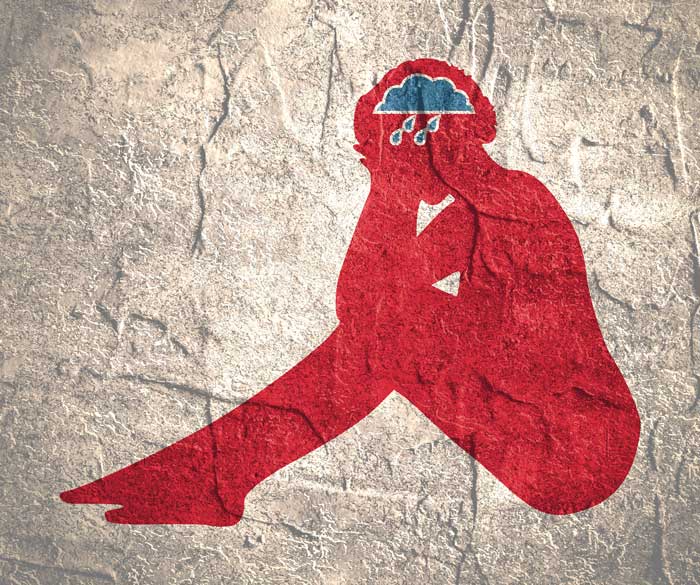By Sandy Baker
In some situations, individuals need both depression and addiction treatment.
Treating one without the other can lead to limited benefits.
Understanding depression, and whether you or your loved one has it, is essential. It can help you find the right care to promote lasting sobriety.
Depression Is Common and Destructive
Depression is not something “someone else has.” Many men and women with alcohol and drug addiction suffer from it as a result of changes in brain chemistry. In other situations, individuals struggle with depression long before they begin using alcohol or drugs. The U.S. National Institutes of Health state an estimated 16.2 million adults in the country have had at least one major depressive episode. This accounts for nearly 7 percent of the population. Depression could be a key factor in your own treatment needs.
What Types of Depression Exist?
The term “depression” refers to a set of conditions in which a person experiences depressive symptoms for a period of two weeks or longer. The feeling of sadness impacts every facet of your life. The way you eat, sleep, and interact with people changes. You may be unable to work. Some people become unwilling to socialize. Treatment for depression depends on the severity and type of depression you have as well as the drug and alcohol abuse care necessary.
• Persistent Depressive Disorder
Known as dysthymia, this form of depression is a type of long-term condition in which a person suffers from low self-esteem, feelings of inadequacy, lack of productivity, and a lack of interest in their daily life. Individuals with this form of depression often suffer from it for weeks, months, or even years unless treatment is obtained. This form of depression can be mild or more severe.
Symptoms include:
- Difficulty being positive, even during happy experiences
- A constant state of being gloomy or disappointed
- Loss of interest in things once enjoyed
- Low self-esteem; feeling not good enough
- Low productivity; difficulty at work or school
- Complaining often, even of small issues or conditions
- Seemingly unable to really have fun
- Drug or alcohol abuse as a way to numb feelings
Persistent depressive disorder tends to last. As such, a combination of treatment options is often necessary. This may include psychotherapy as well as medication.
• Major Depressive Disorder
Perhaps one of the more common forms, major depressive disorder, or clinical depression, also lasts long-term. It can impact a person for months at a time, or come and go somewhat often. Symptoms include:
- Feeling sad, frustrated, or overwhelmed even over small things
- Struggling with anxiety and restlessness
- Lack of energy
- Trouble sleeping
- Slowed thinking or body movements
- Trouble thinking or concentrating
- Being unable or unwilling to make decisions
- Thoughts of death or suicide
Major depression interferes with day-to-day living and can require ongoing treatment. Talk therapy and medication are recommended depending on severity.
• Psychotic Depression
Major depressive disorder with psychotic features, or psychotic depression, is a serious form of depression and requires immediate medical care. Psychotic depression impacts all aspects of a person’s life and can create conditions in which a person is at a higher risk of hurting themselves or someone else. Common symptoms include:
- Depressive symptoms (like those previously noted) along with hallucinations
- Delusions or inability to see what is really occurring
- Feelings of inadequacy
- Significant guilt
- Changes in vision, hearing, or sense of smell
- Believing things are not real
Hospitalization is critical to stabilize an individual with psychotic depression. Medication tends to become a lifelong requirement. In some cases, drug and alcohol abuse can worsen these symptoms.
• Other Forms of Depression
Individuals may have other types of depression. They include:
- Melancholia – A severe form of depression characterized by a person who moves more slowly. A physical change in the body is common here, leading to a loss of pleasure in just about anything.
- Postpartum Depression – This form occurs after a woman has given birth, often creating a situation where the body’s hormones are strained, emotions are changing, and a lack of normalcy is present.
- Seasonal Affective Disorder – This form of depression occurs during colder or darker months, often characterized by feelings of sadness and despair during the winter months. Light therapy tends to help, but alcohol and drug abuse can make symptoms life-threatening.
- Manic-Depressive Disorder – Also known as bipolar depression, individuals with this disorder exhibit extreme levels of change in their behavior and mood, often going from extreme euphoria to severe depression.
Treatment Saves Lives
Depression and drug or alcohol abuse often go hand-in-hand. If you or a loved one is experiencing these symptoms, realize you cannot just “shake it off.”
Because of the change in the brain’s chemistry, depression requires treatment in a professional setting. In some situations, intensive outpatient programs can work well, but for those with depression and a chemical dependency, inpatient care and detox are necessary.








